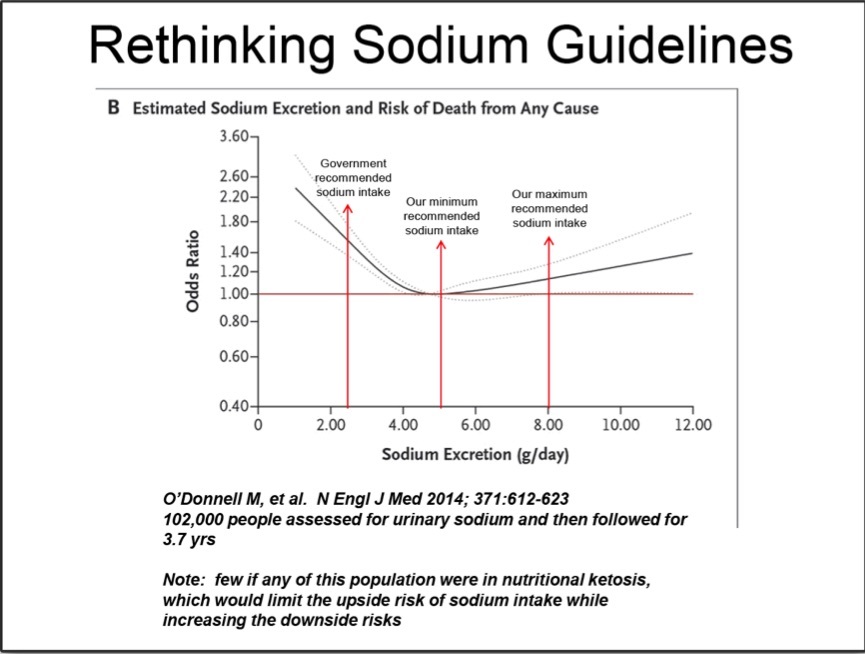Part VII – Dietary Villains: Salt Scare, by Jason Fung, Sep 17, 2013:
An in-depth look at the controversy surrounding the low salt diet and whether salt reduction is beneficial leading to the surprising conclusion that salt is not nearly the dietary villain we all believed.
Dr Fung points out that reducing dietary salt increases hormones that have negative impacts on your health in much greater percentages than the percentage decrease in blood pressure, and that higher blood pressure has not been proven to be detrimental by itself. Especially, lowering dietary sodium INCREASES mortality in cardiac patients.
At the Feb 2015 Cape Town LCHF Convention, Dr Phinney discussed a new salt study at 56:55 in his presentation, The Art and Science of Low Carbohydrate Living and Performance. The study suggests that optimally we should all eat 5 g of sodium per day! (About 2.25 tsp of table salt.)
From the Background section of the Original Article, Urinary Sodium and Potassium Excretion, Mortality, and Cardiovascular Events:
Although clinical trials have shown a reduction in blood pressure with a reduced sodium intake, to our knowledge, no large randomized trial has been conducted to document reductions in the risk of cardiovascular disease with low sodium intake. Prospective cohort studies have shown inconsistent associations between sodium intake and rates of cardiovascular events and death. Several studies have shown an increased risk of cardiovascular disease or death among people consuming less than 3.0 g of sodium per day, as compared with average intake, but many of these studies included people at high cardiovascular risk, who were not representative of the general population. The association between sodium intake and cardiovascular disease is complex and may be modified by other dietary factors, such as potassium intake, which has also been associated with cardiovascular risk.
Because of the need for data from large studies examining the association between sodium intake and cardiovascular disease in general populations, we conducted a prospective cohort study that included 101,945 people from five continents. We examined the association of urinary sodium and potassium excretion with death and incident cardiovascular events.
Dr Phinney also discussed the new salt study at the beginning of ‘Interactive Workshop – Optimising LCHF for Weight Loss and Health’, Dec 16, 2016.
For comparison, “The 2015-2020 Dietary Guidelines for Americans recommend that Americans consume less than 2,300 milligrams (mg) of sodium per day.” That 2.3 g of sodium is only 46% of the new study recommended 5 g / day (N.B.: 2.25 tsp table salt has 5.23 g of sodium).


